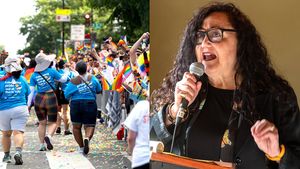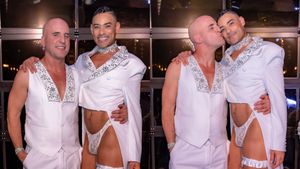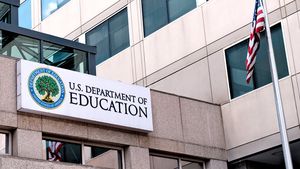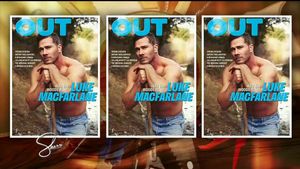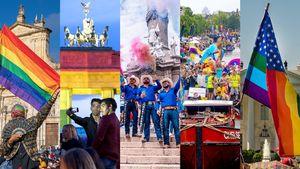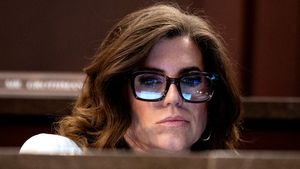LGBTQ+ rights face a major setback in the United States, all because one woman wants to deny queer people a service they didn't ask for.
The nation's highest court is set to release a ruling Friday that will determine whether or not a business can refuse to serve someone simply because they are LGBTQ+.
In 303 Creative, Inc. v. Elenis, a web designer out of Colorado is claiming that because her service is “expressive,” “artistic,” and “customized,” she does not have to comply with the state's anti-discrimination laws — which include LGBTQ+ people. Lorie Smith believes that taking LGBTQ+ customers would violate her religious beliefs, and therefore her First Amendment rights.
But wait, didn't we already rule on this?
The website case is almost identical to a case from 2018, in which the court determined that a baker (also in Colorado) had the right to refuse to make a wedding cake for a same-sex couple. However, the case did not involve the state's anti-discrimination law, and did not determine when businesses can receive an exemption.
While real LGBTQ+ couples were rejected and discriminated against in the case of the wedding cake, what's different about the web design case is that Lorie Smith was never asked to make a website for a same-sex wedding.
In fact, she's never been asked to make any wedding website.
According to her own petition, Smith simply wants to start designing for weddings, and filed her lawsuit in an attempt to avoid LGBTQ+ customers altogether. The case was actually brought on her behalf by the same conservative group that brought Masterpiece Cakeshop v. Colorado.
The Alliance Defending Freedom (ADF) is a group dubbed a “Christian legal army” by its founder, which has a long history of opposing civil rights protections for LGBTQ+ people. Despite Smith never designing a wedding website and alleging no legal injuries, the ADF has added her to their Cakeshop case to bolster their arguments.
The state argues that their anti-discrimination law does not force Smith to go against her beliefs — it only requires her businesses to provide the same goods or services to people of all sexual orientations and gender identities.
"Not only has this case been manufactured, which is unusual in terms of the way litigation develops, but it has been done so for the express purpose to harm same-sex couples, and that has been the ADF's mission for many, many years now," Anthony Michael Kreis, an assistant professor of law at Georgia State University’s College of Law, told Teen Vogue.
The American Civil Liberties Union, which represented the gay couple denied a cake, previously filed an amicus brief in the ongoing case, urging the court to reject Smith's arguments. They noted that if the business is given an "artistic" exemption, judges will be left to decide what businesses fall into that category.
Meaning that while the law may still say that LGBTQ+ people are protected from discrimination in other fields such as housing and education, a judge's opinion could change how the law is applied and enforced.
"Granting businesses that choose to sell to the public a free speech right to discriminate if their product is expressive would either swallow the rule against discrimination or require judges to make impossible assessments about whether a good or service is sufficiently expressive to give rise to a right to discriminate," the ACLU wrote.
Unfortunately, because the court previously ruled 7-2 that the bakery owners should be allowed to discriminate, it is unlikely the current conservative-dominated court will decide otherwise now.


































































